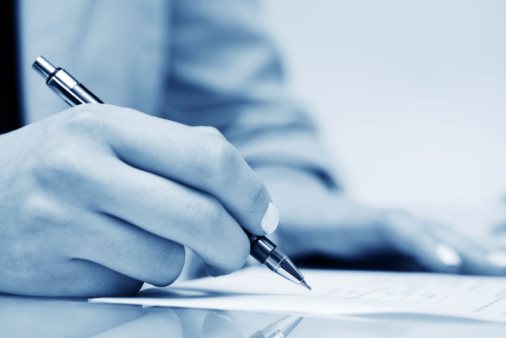
When recuperating from any sort of injury in Georgia, a Georgia personal injury lawyer can help you win damages if your accident was caused due to the actions of another. These damages can be used to pay for hospital treatment, lawyer costs, lost wages and transportation costs if the injured person is no longer able to drive due to their injuries. If dealing with this matter in Georgia, a Georgia personal injury lawyer is your best option when seeking damages. Georgia personal injury lawyers will be familiar with laws defining liabilities, accidents and other relevant laws that can affect your case. Use a Georgia personal injury lawyer over an out of state lawyer whenever you have the option to do so.
What is personal injury?
Personal injuries are any physical, emotional and mental harm done to a person. Injuries that are eligible for damages are extensive, including medical malpractice, auto accidents, product defects and even damages caused by environmental hazards. Georgia personal injury lawyers can also help sue for non-payment of injury compensation such as withholding of worker’s compensation. Most injury lawyers will also represent individual when applying for certain benefits or appealing a decision to deny or repeal benefits, such as representing you in social security disability hearings.
Why do I need a Georgia personal injury lawyer?
Every state has different laws on personal injury tort. For example, the statutes of limitation for personal injury cases are 2 years and allow for the statute of limitations to begin at the discovery of the injury. Not every state will have such a reasonable timeframe to file suit and a Georgia personal injury lawyer would have informed you about the statute of limitations as well as other relevant facts about the case.
What should I bring when meeting with a Georgia personal injury lawyer?
You must bring relevant items such as police, medical and insurance documents related to the injury to the appointment. This is to determine which claims should be made and whom to make these claims against. The most important aspect of a personal injury case is determining liability. This liability must be proven in court, should the liable party refuse to settle. If the party intends to file claims of their own, inform the lawyer of the nature of these claims so that that Georgia personal injury lawyer can also prepare a defense.
How do I know my Georgia personal injury lawyer is legitimate?
All individuals that practice law in the state of Georgia must be active members of the integrated Georgia Bar Association. If the individual claiming to be a lawyer cannot show proof of Bar Association membership, then this legal professional is very suspect. Proof of Bar Association certification is necessary when seeking these services, to ensure that the service the lawyer will provide is professional, ethical and in compliance with Georgia law.
If you ever have doubts about the credentials of your Georgia personal injury lawyer, ask to examine his or her credentials. If the lawyer cannot produce them, then you may want to seek out another lawyer that you feel comfortable working with. The lawyer must be professional and above all impartial. If the lawyer appears to be saying only things that you want to hear or is otherwise disingenuous, then these are marks of a poor lawyer. Lawyers will vary in their approach to personal injury cases with some preferring to litigate and make their case to a jury. Others will prefer to work out a settlement opting to avoid litigation and using the possibility or threat of litigation as leverage to receive a better settlement.
What are the typical rates of a Georgia personal injury lawyer?
The type and nature of legal fees for Georgia personal injury lawyers will vary from case to case. Most Georgia personal injury lawyers will work on contingency, which will entitle the lawyer to a percentage of the award. These lawyers will claim that they will not collect fees unless they win the case. Court fees will usually have to be paid by the client under this arrangement. Not every contingency arrangement will entail that no fees will be paid by the client, so ascertain the nature of the relationship before retaining the services of the Georgia personal injury lawyer.
A retainer is a fee that remains in a trust account. Every time the lawyer performs a service related to your case, he charges this account. Leftover retainer can be returned to the client, but there is also a chance that the attorney will exhaust the retainer and require the client to refill the account. The retainer does not include court costs, which are also paid by the client. However, these fees, such as the fees for filing the case, are fixed. You will usually not need this arrangement when pursuing a personal injury claim and this arrangement can become expensive for lengthy trials that are not settled early.
Take advantage of free consultations when they are available to discuss potential fees and payment arrangements with Georgia personal lawyers. The above fees do not consider court costs, which are also paid by the client. You may be able to arrange low cost and extended payment for legal services at the discretion of the attorney or law firm.
There are several lawyer referral services for Georgia personal injury lawyers, although none is available through the unified Bar Association. Rather you must rely on local Bar Association referral services or private referral services. Check the expected fees associated with these services and ensure that the initial consultation with the lawyer is low cost or free.
What are questions to ask Georgia personal injury lawyers?
How does my case relate to Georgia state and local laws?
What are your fees and do you have alternate payment plans?
Are you an active member, in good standing, of the State Bar of Georgia?
What roles do you play as a member?
How strong is my claim and do you think the other party will be willing to settle?
Will you work for a percentage contingency?
Are there other fees associated with your contingency arrangement?
Do you see any potential flaws in my injury compensation claim?
Can you refer me to another lawyer if you are unable to take my case?
Will my negligent actions affect my award in this case?








